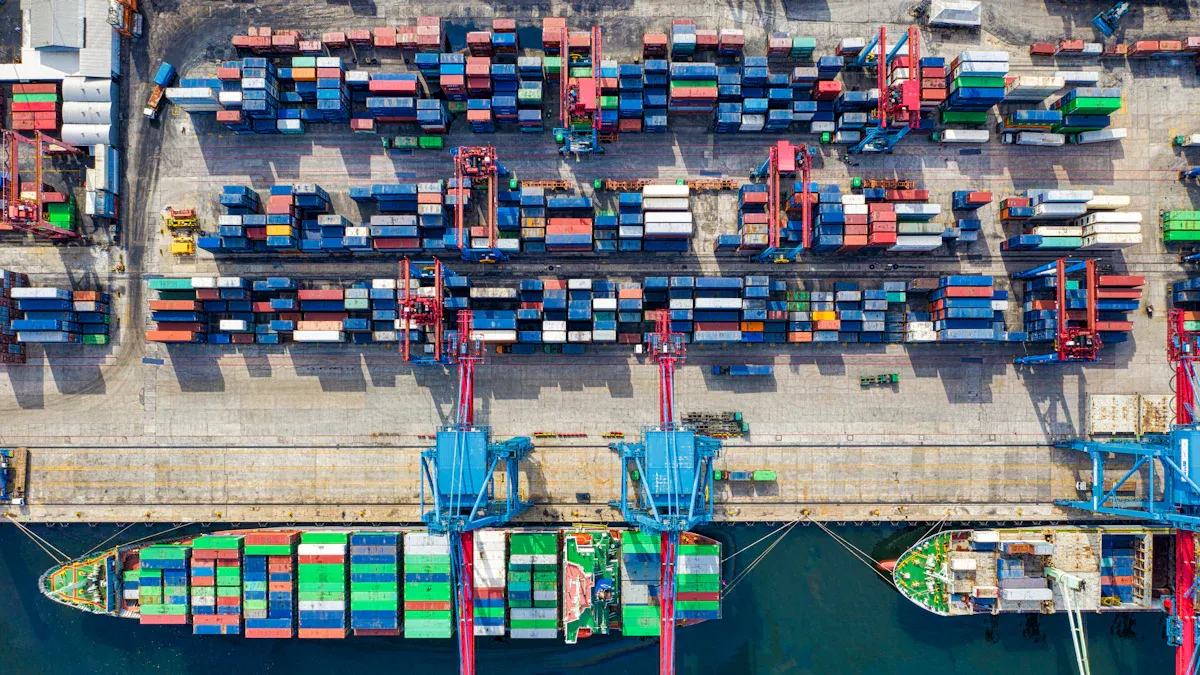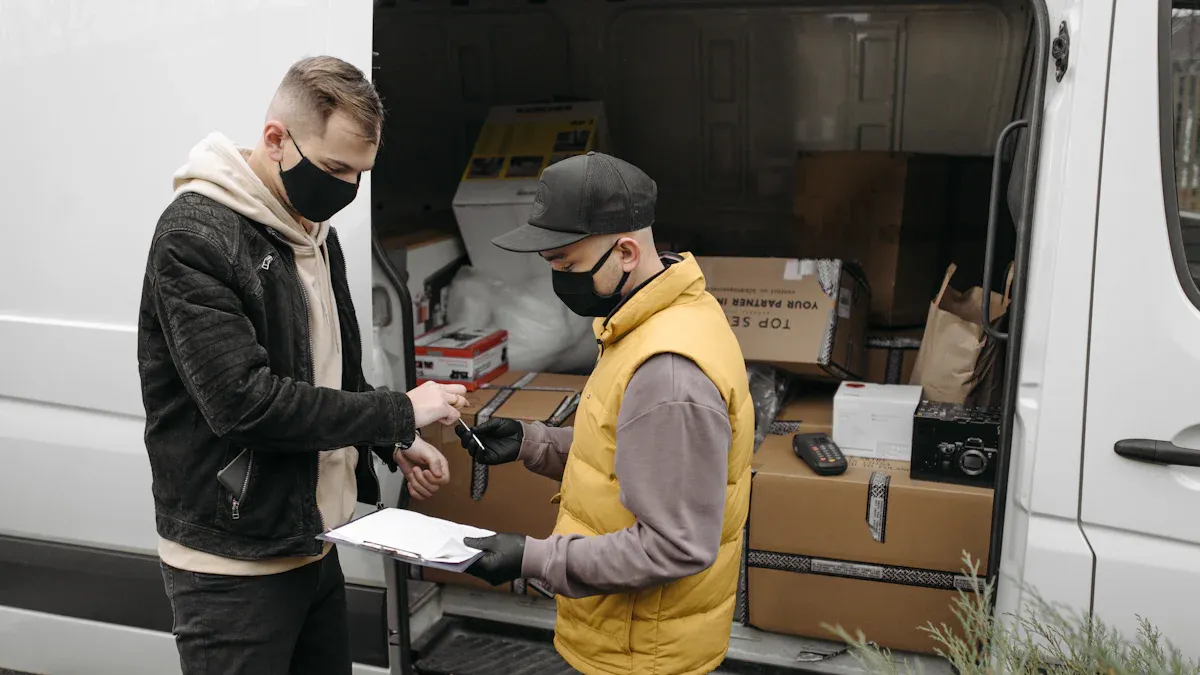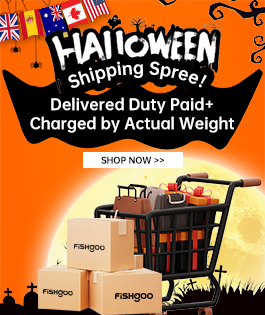What Is International Freight Forwarding and Why Does It Matter?

International Freight Forwarding is about moving goods between countries. You hire a freight forwarder to help send products to other nations. Freight forwarders take care of paperwork and talk to carriers. They fix problems that happen during shipping. This service is important because you can ship things worldwide. You do not have to handle every step yourself. Businesses and people get easy and safe transport with international freight forwarding.
Key Takeaways
International freight forwarding helps move goods between countries. It makes shipping safe and easy. Freight forwarders handle shipping, customs, and paperwork for you.
Freight forwarders plan routes and combine shipments. They arrange transport and track your cargo. This saves you time and money.
Using a freight forwarder lowers risks like delays and lost goods. It also helps avoid customs problems. They make sure your shipments follow all rules.
Freight forwarders make supply chains better. They give expert advice and offer better prices. They also provide real-time tracking. This keeps your business running well.
Picking the right freight forwarder is important. Look for one with experience and a strong network. Good customer support and reliable services also matter.
International Freight Forwarding Basics
What It Means
International freight forwarding helps you move goods between countries. You do not need to handle every step yourself. A freight forwarder becomes your partner for shipping. The freight forwarder takes care of the whole process. They handle paperwork, customs, and transportation.
Tip: Freight forwarders help you follow customs and shipping rules. They know the laws in each country. They make sure your goods move without problems.
International freight forwarding is more than just moving boxes. You get help with planning and picking the best route. The freight forwarder makes sure your cargo arrives safely. They can combine shipments, store goods, and track packages for you.
Here are the main jobs of international freight forwarding:
Documentation and Customs Clearance: You get help with paperwork and customs rules.
Cargo Consolidation: Your shipments can be combined with others to save money.
Warehousing and Distribution: You can store goods and manage orders.
Transportation: The forwarder arranges the best way to move your cargo.
Risk Management: You get advice on insurance and how to protect your goods.
Function | Description |
|---|---|
Supply Chain Management | You get advice on shipping, costs, and planning. |
Transportation Coordination | The forwarder sets up transport by air, sea, rail, or road. |
Cargo Consolidation | Your small shipments can be grouped with others to save money. |
Multimodal Expertise | The forwarder uses different ways to move your goods. |
Route Optimization | You get the best mix of speed, cost, and reliability. |
Customs Clearance | The forwarder helps you follow customs rules and avoid delays. |
Documentation Management | All shipping documents are handled for you. |
Cargo Insurance | You get help with insurance and claims if needed. |
Warehousing and Distribution | You can store and manage your goods in warehouses. |
Cargo Tracking | You can track your shipment in real time. |
Risk Management | The forwarder helps you avoid problems and disruptions. |
Specializations | You get help with special cargo, like oversized or hazardous materials. |
How It Works
International freight forwarding uses a step-by-step process. First, you tell the freight forwarder what you want to ship. You also say where it needs to go. The forwarder plans the best route. They pick the right way to transport your goods.
Here is a typical process you might follow:
Export Haulage: Your goods move from your place to the freight forwarder's warehouse.
Items Checkpoint: The forwarder checks and inspects your goods.
Export Customs Clearance: The forwarder prepares documents and gets approval from customs in your country.
Origin Handling: Your goods are packed, labeled, and prepared for shipping.
International Transportation: The forwarder arranges for your goods to travel by air, sea, rail, or road.
Import Customs Clearance: The forwarder handles customs at the destination country.
Destination Arrival and Handling: Your goods arrive at a local warehouse and are checked again.
Import Haulage: The forwarder delivers your goods to the final address.
Note: Customs clearance is very important. The forwarder prepares all documents and gives them to customs. They pay duties and help you avoid delays.
You can pick different transport modes for your needs:
Mode | Typical Use Cases | Advantages and Considerations |
|---|---|---|
Good for regional and cross-country deliveries. Used for retail, manufacturing, and eCommerce freight. Works for palletized or boxed goods. | Door-to-door service, flexible, fast for regional routes, special equipment options. | |
Rail Freight | Used for heavy or bulk goods. Good for long-haul domestic or intermodal shipments. | Cost-effective for bulk, fuel-efficient, eco-friendly, consistent schedules. |
Ocean Freight | Used for international exports and imports. Good for large or heavy shipments and non-urgent goods. | Economical for large shipments, global reach, supports many container types, longer transit times. |
Air Freight | Used for express shipping, high-value, or perishable goods. Good for urgent deliveries. | Fastest mode, secure, frequent schedules, reliable, higher cost. |
How long shipping takes depends on the mode and route. Sea freight can take 20 to 45 days. Air freight usually takes 1 to 5 days. Customs and busy seasons can add extra time.
International freight forwarding is not the same as domestic forwarding. You must deal with customs, international laws, tariffs, and currency exchange. The forwarder handles these hard tasks for you. Domestic forwarding only moves goods inside one country and follows local rules.
When you use a freight forwarder, you get expert help. They help with planning, paperwork, and solving problems. You can focus on your business while the forwarder does the rest.
Why It Matters
Impact on Global Trade
When you send or get goods from other countries, you help the world economy. International Freight Forwarding changes how products move between nations. Using a freight forwarder helps connect markets and grow trade. The global freight forwarding market faces problems like tariffs and route changes. These problems can slow trade and make it cost more. But freight forwarders keep goods moving, even when things get tough.
The global freight forwarding market might get 1.1% smaller in 2025 because of new rules and higher tariffs.
Costs can go up, and trade can slow if shipping gets harder.
Asia keeps growing, but Europe has more problems. North America does well because people buy more and roads are better.
E-commerce makes more people need freight forwarding, especially in new places.
The market grows slower now, with less profit and more pressure on trade routes.
Better logistics, like good freight forwarding, helps big countries trade more. If you use a good forwarder, you pay less to trade and it gets easier. This helps most in places with lots of demand and strong shipping systems.
Role in Supply Chains
You need supply chains to get products fast and at a good price. Freight forwarders like FISHGOO help you run these supply chains. They pick the best way to ship, plan the route, and handle customs. This help keeps your shipments moving without problems.
Freight forwarders know trade rules and help you avoid waiting.
They use their contacts to get better prices and organize shipping.
You get shipping plans that fit your business.
You can track your goods at any time.
They help you plan and avoid problems.
They find the best routes and group shipments to save money.
Many forwarders now try to ship in ways that help the environment.
Freight forwarders also offer storage, insurance, and help all day and night. You can focus on your work while they handle shipping. This teamwork makes your supply chain stronger and work better.
Freight Forwarder Responsibilities

Main Process Steps
When you use International Freight Forwarding, your freight forwarder handles every shipping step. You do not need to worry about the small details. The freight forwarder, like FISHGOO, is your shipping expert. Here is what they do for you:
You get help with packing, picking transport, and planning routes.
The forwarder talks to carriers and books space for your goods.
You get help with customs, shipping papers, and insurance forms.
The forwarder watches your shipment and gives you updates.
You can count on the forwarder to fix problems and keep things on track.
You get tips from the forwarder’s experience with shipping issues.
The forwarder sets up transport from your place to the port or airport.
You save money when your goods are grouped with other shipments.
The forwarder takes care of storage and helps with cargo insurance.
You get help with global rules and new shipping laws.
Tip: Freight forwarders like FISHGOO use smart tools to track your goods. You always know where your shipment is.
Key Documents
You need some important papers for international shipping. Each paper has a job and helps you follow trade rules.
Document Name | Purpose / Why Required |
|---|---|
Commercial Invoice | Lists what you ship, how much, and the value. Used for customs and trade rules. |
Packing List | Shows what is in the shipment, weight, and size. Helps with shipping and customs checks. |
Bill of Lading (B/L) or Air Waybill | Proves who owns the goods and the shipping contract. Needed for legal control and to get your cargo. |
Certificate of Origin | Shows where your goods are from. Changes customs fees and trade deals. |
Insurance Certificate | Proves your goods have insurance. Protects you if things get lost or broken. |
Booking Confirmation | Shows you have a spot for sea freight. Helps plan shipping. |
Shipper’s Letter of Instruction | Tells the forwarder and carriers how to handle and send your goods. |
Export/Import Licenses | Needed for special goods. Makes sure you follow export and import laws. |
Customs Declarations | Needed for customs checks. Lists what you ship for the rules. |
Letters of Credit | Used for payment. Keeps money safe between buyer and seller. |
Note: These papers help you clear customs, prove you own the goods, manage risk, and follow trade laws. Your freight forwarder gets these papers ready and checks them for you.
Benefits of Using a Freight Forwarder
Risk and Compliance
Shipping goods to other countries can be risky. You might have delays from busy warehouses or customs checks. Sometimes, workers go on strike and slow things down. Goods can get lost or broken during shipping. Money risks happen if prices or currency change quickly. Laws and rules change a lot. You must follow them or you could get fined or lose your goods.
Freight forwarders like FISHGOO help you with these risks. They help you follow customs rules so your goods cross borders easily. They get all the papers ready and check every rule. You also get help with insurance to keep your cargo safe. If something goes wrong, your forwarder fixes it fast.
Tip: Let your freight forwarder handle customs papers and insurance. This keeps your goods safe and helps your business work well.
Here are some risks you avoid with a freight forwarder:
Delays from bad weather or strikes
Shipments that get lost or broken
Problems with customs rules
Worries about carrier trust
Money risks from currency changes
Security risks like theft or fraud
Cost and Efficiency
You want to save money and ship things fast. Freight forwarders help you do both. They put small shipments together to make bigger loads. This means you pay less for each item. You get better prices because forwarders talk to many carriers and make deals for you. They know the best times to ship so you avoid high costs.
Freight forwarders use digital tools to track your shipments and manage papers. You see updates right away and avoid mistakes that cost money. They check bills and find overcharges to save you more. You get advice on the best routes and ways to ship so your goods arrive faster and cheaper.
Forwarders pick the fastest and cheapest routes.
They offer flexible shipping by air, sea, rail, or truck.
You get help with customs to avoid delays and fines.
Real-time tracking helps you manage your inventory.
Digital tools cut down on mistakes and show clear prices.
Using a freight forwarder like FISHGOO means you worry less about shipping. You get expert help, spend less money, and your supply chain works better.
Choosing a Freight Forwarder
What to Consider
Picking the right international freight forwarder is important for shipping. You want a partner who knows your needs and keeps your goods safe. First, look at how much experience they have. A forwarder with lots of experience can fix problems fast. They know what to do if there are delays or customs issues.
Tip: Make sure the forwarder has shipped your kind of goods before, like electronics, perishables, or big items.
A good forwarder like FISHGOO gives you many services. These services include warehousing, customs clearance, insurance, and tracking. You should also pick a forwarder with a strong global network. This network helps your shipments move faster and lowers the chance of delays.
What to Look For | |
|---|---|
Expertise | Knows your goods and understands shipping rules. |
Agent Network | Has agents in both starting and ending countries. |
Global Presence | Ships to many places and grows with your business. |
Market Experience | Handles problems like port closures or customs delays. |
Value-Added Services | Offers warehousing, insurance, packaging, and tech help. |
Reliability | Has certifications and clear rules for delays or lost goods. |
Responsiveness & Support | Gives quick updates and answers your questions during shipping. |
The forwarder’s technology is important, too. Pick one that uses digital tools for tracking and paperwork. This makes shipping easier and lets you see what is happening.
Common Concerns
You might worry about rules, restrictions, and insurance when shipping. Customs rules can change fast. If your forwarder does not follow these rules, your goods can get stuck or you might pay fines. Pick a forwarder who knows trade laws and has certifications like FIATA or IATA. This means they follow the rules and work professionally.
Many people also worry about insurance. Ask your forwarder about the insurance they offer. You want coverage for loss, damage, or theft. Choices include all-risk, named-peril, and open cargo insurance. Make sure you know what each policy covers.
Note: A strong global network helps your forwarder fix problems fast. They work with trusted partners in important places, so your goods arrive on time.
You should also check the forwarder’s customer service. Good communication helps you get updates and solve problems quickly. Read reviews and ask for references to see how the forwarder handles issues.
When you choose a forwarder like FISHGOO, you get a partner who manages risks, follows rules, and keeps your shipments safe. This lets you focus on your business while your goods travel safely around the world.
If you understand international freight forwarding, you can ship goods worldwide without worry. You get more than just moving your items. You also get help from experts, save money, and lower risks. Freight forwarders like FISHGOO make hard shipping jobs easy. They handle customs and let you track your goods as they move.
You work faster and can sell in new places.
You save time and can do your main job.
You feel safe because of insurance and following rules.
Next steps:
Look for a good freight forwarder.
Ask for a price and check what they offer.
Begin shipping your goods around the world.
FAQ
What does a freight forwarder like FISHGOO do for you?
You get help with every step of shipping. FISHGOO arranges transport, handles customs, manages documents, and tracks your goods. You save time and avoid mistakes.
How do you track your shipment?
You use online tracking tools. FISHGOO gives you updates at each stage. You always know where your cargo is and when it will arrive.
What documents do you need for international shipping?
You need a commercial invoice, packing list, bill of lading, and insurance certificate. FISHGOO prepares these for you and checks them for accuracy.
Can you ship personal items, not just business goods?
Yes! You can ship personal packages, gifts, or household items. FISHGOO helps individuals and businesses with all types of shipments.
What if your goods get delayed or lost?
You contact FISHGOO’s support team. They solve problems quickly and help you with insurance claims. You get updates and solutions fast.
See Also
The Importance Of Global Warehousing For Business Growth
How Savvy Buyers Rely On China Freight Forwarders
Key Global Shipping Options Every Newcomer Needs In 2025
Complete Breakdown Of JD Buying And Shipping Services
Guide For International Students Using Taobao Agents And Shipping


